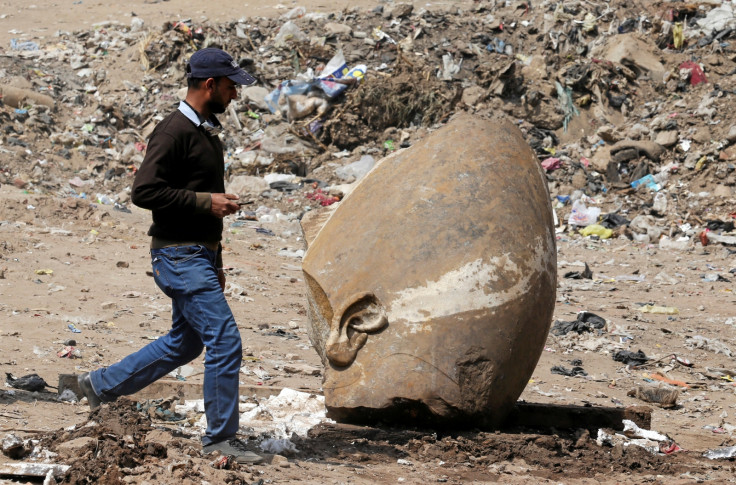Statue 'depicting the great Pharaoh Ramses II' discovered in Cairo
Eight-metre statue of legendary Egyptian ruler is thought to be more than 3,000 years old.
A massive statue thought to depict Pharaoh Ramses II, who ruled Egypt more than three millennia ago, has been found in Cairo in what has been described as one of the most important discoveries ever made in the country.
A forklift pulled the 8m statue of the pharaoh, who ruled from 1279 to 1213 BCE, from ground water in eastern Cairo.
Ramses II pushed the Egyptian Empire to include present-day Syria in the east to Sudan in the south and was dubbed by his successors as the "Great Ancestor".
Antiquities minister Khaled al-Anani told Reuters: "Last Tuesday they called me to announce the big discovery of a colossus of a king, most probably Ramses II, made out of quartzite.
"We found the bust of the statue and the lower part of the head and now we removed the head and we found the crown and the right ear and a fragment of the right eye," he added.
The joint German-Egyptian expedition also discovered part of a statue of Pharaoh Seti II, who was Ramses's grandson. Experts will now extract the remains of the statues and attempt to restore them.
The news agency reports that if the colossus is proven to be Ramses II, it will grace the entrance of the soon-to-be-opened Egyptian Museum.
The find could be a major boost for tourism in Egypt, which has seen its numbers slump since Hosni Mubarak left power in 2011 from 14.7 million to 9.8 million last year.

© Copyright IBTimes 2025. All rights reserved.






















